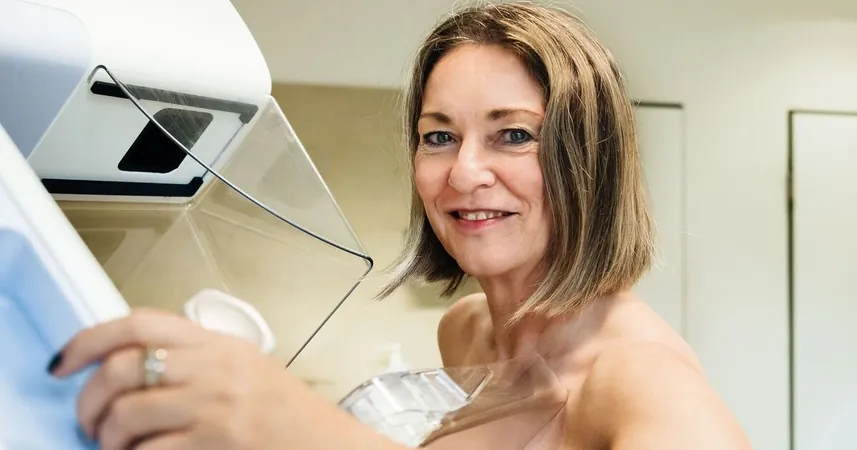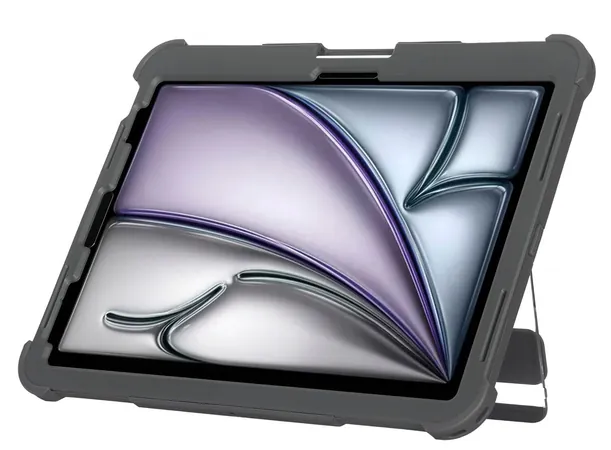
Make Breast Cancer Checks Your 2025 New Year's Resolution!
2024-12-31
Author: Li
As we approach the New Year, renowned radiologist Dr. Nisha Sharma from the Leeds NHS Foundation Trust is urging women to prioritize breast health in their 2025 resolutions. With breast cancer being a leading health concern, her essential checklist could save lives!
1. Understand Your Risk:
Breast cancer can affect anyone, and some risks are unavoidable. While most breast cancers are diagnosed in women over the age of 50, younger women still need to be vigilant. A family history of breast cancer or genetic predispositions can increase your risk significantly. Many women aren't aware that having dense breast tissue can also elevate risk. Maintaining a healthy lifestyle is crucial; overweight women post-menopause face even greater risks. Make 2025 the year you educate yourself about family history, genetic markers, and healthy living!
2. Get to Know Your Breasts:
Monthly self-examinations are vital. Women should routinely inspect their breasts in front of a mirror for any changes in size, shape, or skin texture. Additionally, they should pay attention to any discomfort or unusual discharge. Performing a systematic hand examination by lying down can help in detecting new lumps that might otherwise go unnoticed. Get in the habit of performing these checks regularly—it's a simple step that could lead to early detection!
3. Make an Appointment with Your GP:
Don’t overlook the importance of regular check-ups. If concerns arise from your self-examinations or risk factor assessments, consult your GP. They can evaluate your personal risk and suggest tailored screening options that suit your needs. Being proactive about your health is the best gift you can give yourself!
4. Never Skip a Mammogram:
Mammograms are crucial for early detection of breast cancer. Women aged 50-70 are automatically invited for screenings every three years by the NHS, but those at elevated risk may be advised to undergo annual screenings. Early detection can dramatically increase treatment success rates — don’t put it off!
5. Request Your Breast Density Reading:
Breast density can significantly impact cancer detection, and understanding yours is essential. Breast tissue consists of glands, fibrous tissue, and fat, and these can be classified from low-density (mostly fatty) to high-density (which can obscure tumors during mammograms). Awareness about breast density is vital in discussing further screening options, such as MRIs, which can be more effective for dense breast tissue.
A poignant reminder of the importance of this knowledge comes from Clare Cowhig, a 56-year-old who experienced a late diagnosis due to her dense breast tissue. Despite her annual mammograms, Clare was unaware that her breast density could affect her detection outcomes. After a private ultrasound revealed invasive cancer, she realized that had she known about her density, she could have pursued additional screenings, potentially saving herself from aggressive treatments like a double mastectomy.
The advancements in technology for detecting tumors in dense breast tissues are crucial, and Clare’s call for awareness stresses the need for women to be informed and proactive in their breast health journey. Make 2025 the year of empowerment — know your body, understand your risks, and advocate for your health!
This new year, don’t just resolve to lose weight or exercise more; add breast cancer awareness to your list and encourage your loved ones to do the same. Early detection can be a lifesaver!



 Brasil (PT)
Brasil (PT)
 Canada (EN)
Canada (EN)
 Chile (ES)
Chile (ES)
 Česko (CS)
Česko (CS)
 대한민국 (KO)
대한민국 (KO)
 España (ES)
España (ES)
 France (FR)
France (FR)
 Hong Kong (EN)
Hong Kong (EN)
 Italia (IT)
Italia (IT)
 日本 (JA)
日本 (JA)
 Magyarország (HU)
Magyarország (HU)
 Norge (NO)
Norge (NO)
 Polska (PL)
Polska (PL)
 Schweiz (DE)
Schweiz (DE)
 Singapore (EN)
Singapore (EN)
 Sverige (SV)
Sverige (SV)
 Suomi (FI)
Suomi (FI)
 Türkiye (TR)
Türkiye (TR)